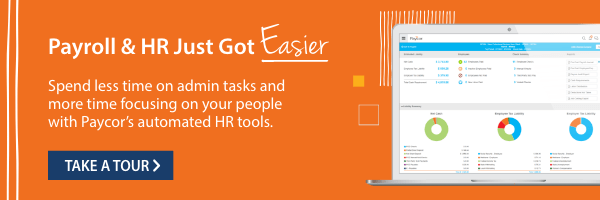Ninety-three percent of U.S. employee are paid by direct deposit, according to the American Payroll Association’s “Getting Paid in America” Survey. It’s by far the most popular payment method, but that doesn’t mean there aren’t employees who’d prefer to receive a traditional printed paycheck.
Can you make direct deposit mandatory for your employees? Yes… and no. Like most things in HR, it all depends on the employment law in your state and the classification of employees.
To help businesses, we’ve prepared this table so you can easily track the mandatory direct deposit laws wherever you are.

Curious about how to choose the right HR software for your organization? Get help from our Buyer’s Guide.
Direct Deposit Requirements by State as of December 2023
| State | Can You Make It Mandatory? | Covered employers |
| Alabama | Private Sector: Yes Public Sector: No | Private Sector only |
| Alaska | No | |
| Arizona | No | |
| Arkansas | No | |
| California | No | |
| Colorado | No | |
| Connecticut | No | |
| Delaware | No | |
| District of Columbia | No | |
| Florida | No | |
| Georgia | No | |
| Hawaii | No | |
| Idaho | No | |
| Illinois | No | |
| Indiana | Yes | All employers |
| Iowa | Yes: Employers may not require employees hired before July 1, 2005, to participate in direct deposit. Employers may require a new employee to sign up for a direct deposit as a condition if hire unless the cost to the employee of establishing and maintain an account would effectively reduce the employee’s wages to a level below the minimum wage, or the employee is covered by a union contract that prohibits the process. | All employers |
| Kansas | Yes | All employers ; required for all state employees |
| Kentucky | Yes | All employers |
| Louisiana | Yes | All employers; required for all state employees |
| Maine | Yes | All employers |
| Maryland | No | |
| Massachusetts | Yes | All employers |
| Michigan | Yes | All employers |
| Minnesota | Private sector: No Public sector: The Commissioner of Labor & Industry may require direct deposit for all state employees | State employees |
| Mississippi | No | |
| Missouri | Yes | All employers |
| Montana | No | |
| Nebraska | No | |
| Nevada | No | |
| New Hampshire | No | |
| New Jersey | Private sector: No Public sector: Yes | State employees |
| New Mexico | No | |
| New York | No; however, beginning March 2024, employers must have employee consent to direct deposit for employees who earn less than $1300/week. | All employers |
| North Carolina | Yes | All employers |
| North Dakota | Yes | All employers |
| Ohio | Yes | |
| Oklahoma | Yes | All employers |
| Oregon | No | |
| Pennsylvania | No | |
| Rhode Island | No | |
| South Carolina | Yes | All employers |
| South Dakota | Yes | All employers |
| Tennessee | Yes | Private employers with at least 5 employees |
| Texas | Yes | All employers |
| Utah | Yes | Private employers except those involved in farm, dairy, agricultural, viticultural, or horticultural pursuits; stock or poultry raising; household domestic service; or other employment in which a written agreement provides different terms |
| Vermont | No | |
| Virginia | No | |
| Washington | Yes | All employers |
| West Virginia | State institutions of higher education: Yes | All state higher ed employers |
| Wisconsin | Yes | All employers |
| Wyoming | No |
Direct Deposit Laws
Depending on state laws, employers can require their employees to receive payments via direct deposit. In some states, receiving direct deposits can even be included as a condition of employment. However, even these states have some restrictions you need to know.
They can include:
- No employer can require an employee to use direct deposit at a specific bank.
- Employers aren’t allowed to charge employees a fee based on payment method.
- Employees must have access to their pay stubs.
*If an employee doesn’t have a bank account, direct deposit payments can still be made via a paycard.
Pay Stub Requirements for Employers
If you provide direct deposit to your employees, you may also be required to provide them with a pay stub if it’s required in your state. Federal law does not mandate pay stubs for workers, but the Fair Labor Standards Act requires employers to keep accurate records of employees’ wages and hours worked. Your state might not require employer-issued pay stubs, but an employee has the right to request payroll records.
For instance, printed pay stubs are mandatory in Arizona, Colorado, Connecticut, Hawaii, Iowa, Maine, Minnesota, New Mexico, North Carolina, Texas, and Vermont. However, most of these states now allow employers to use electronic pay stubs as long as three standards are met:
- Employees can access their pay stubs electronically
- Employees have a unique, secure login
- The pay stubs can be printed
Several states do not require you to provide pay stubs all: Arkansas, Florida, Louisiana, Mississippi, Nebraska, South Dakota, Tennessee, and Virginia. The remaining states require some type of pay stub, whether in print or available electronically, such as via an Employee Mobile app.
Why You Should Use Direct Deposit
Besides having benefits for both employers and employees, direct deposit is fast, simple, and accurate. Pay discrepancies are easily resolved without checks getting lost in the mail or stolen. There are countless advantages over paychecks, here are just a few:
Benefits for the Employer:
- Cost saving: No need to pay for checks, ink or, printer maintenance
- You can process payroll and pay employees no matter where you are located
- Paperless payroll is considered eco-friendly
- Employee information is more secure
Benefits for the Employees:
- Checks don’t get lost or damaged
- Correcting payments is faster
- No longer need to make a trip to the bank
- Instant access to funds
- Receive payment regardless of where they are
- Easily divide their paycheck among multiple accounts, which can help boost employee savings and overall morale
When employees have easy access to funds and paystubs, they can spend less time on banking and more time positively affecting your organization’s bottom line.
Can an employee refuse direct deposit?
Yes, employees in some states legally refusre to have their paychecks deposited directly into a bank account.Whether an employee can opt out depends on the state law and employee classification. However, there are some key things to consider:
- State laws vary. Some states allow employees to decline direct deposit, while others may require it unless the employee does not have a bank account.
- If an employee does not have a bank account, employers are often required to provide an alternative, such as a paycard or a printed paycheck.
- Consent matters. Employees typically need to sign a consent form to enroll in direct deposit, but you cannot force it if the law allows refusal.
Tip: Always confirm your state’s laws and have clear payroll policies in place. Include instructions on how employees can opt out and provide alternative payment methods when necessary.
What do employers need for direct deposit?
To set up direct deposit for employees, employers need accurate payroll information and proper consent to ensure funds are deposited safely and on time.
Here’s what you’ll need from each employee:
- Account type: Checking or savings
- Account number and routing number
- Signed consent form (required in many states)
Tips for a Smooth Direct Deposit Setup:
- Collect information securely using an encrypted form or a secure HR portal.
- Double-check account and routing numbers to avoid misdirected deposits.
- Consider payroll software that can split deposits between multiple accounts and provide instant confirmation to employees.
- Provide access to electronic pay stubs so employees can track earnings and deductions easily.
- Offer an alternative payment method, such as a paycard or a traditional printed paycheck, for employees without bank accounts.
Best-in-Class Payroll & Tax Software
Paycor’s payroll & tax software is the easiest and most powerful solution for medium and small businesses. Learn why 30,000 medium and small-sized businesses partner with Paycor.
Paycor is not a legal, tax, benefit, accounting or investment advisor. All communication from Paycor should be confirmed by your company’s legal, tax, benefit, accounting or investment advisor before making any decisions.









